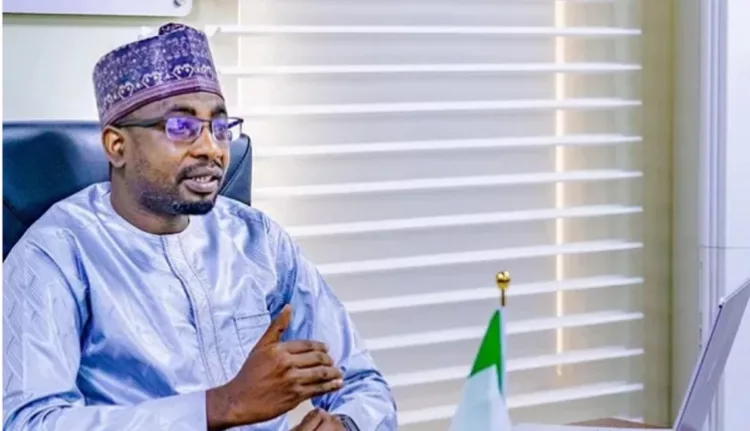Critical stakeholders are backing increased digitalization and technological innovation to optimise Micro, Small and Medium Enterprises (MSMEs) operations for effective service delivery and contributions to Nigeria’s socio-economic growth and development.
Harping on driving sustainable business growth through modern technology, they also described MSMEs as pivotal for national economic growth, and job creation.
For them, by leveraging technology in their daily operations, businesses can improve their efficiency, which currently constitutes one of the major roadblocks to doing business in the country.
These were submissions made at the Development Bank of Nigeria Plc (DBN)’s 4th Annual Lecture Series held in Abuja and attended by an array of small business owners and beneficiaries of DBN credit schemes from across varying sectors of the economy.
The DBN played host to entrepreneurs, business owners, deposit money banks, microfinance banks, development finance institutions, cooperatives, small corporate organisations, and other critical stakeholders in the Nigerian Business Community at the fourth edition of its Annual Lecture Series, with experts and stakeholders advocating for increased digitalization and technological innovation to optimise the business operations of Micro, Small and Medium Enterprises (MSMEs) in Nigeria.
At the event held in Abuja and attended by an array of small business owners and beneficiaries of DBN credit schemes from across varying sectors of the economy, speakers asserted that MSMEs were pivotal for national economic growth, job creation and by leveraging technology within their operations, companies can improve their efficiency, which is one of the roadblocks to doing business in Nigeria.
Speaking on the theme of the lecture “Digital Nigeria – Leveraging Technology to Improve Ease of Doing Business for MSMEs,” the keynote speaker, Mallam Kashifu Abdullahi who is the Director-General of the National Information Technology Development Agency (NITDA), emphasised the importance of digitalization in driving sustainable economic growth in enhancing the ease of doing business for MSMEs.
He highlighted the significance of MSMEs in Nigeria, constituting about 96% of all businesses, contributing 49% to the national Gross Domestic Product (GDP), and employing 84% of the country’s workforce, while assuring of government’s efforts in providing an easy online business registration process, contrasting it with the previous requirement for individuals to travel to Abuja for the same purpose.
“MSMEs that have embraced digitalization and technology tend to fare better, and that underscores a study done in Turkey which shows that 41.2 per cent of 131 SMEs underwent technological innovations, and this led to an operational efficiency of 96.9 per cent.”
“As a government, we have the responsibility to carry everyone along, especially when it comes to inclusivity or access to digital infrastructure, it is no longer a privilege but a necessity”. He stated.
According to him, “We are rounding off with a legal framework that will make it easier for investors to come and invest in digital public infrastructure because this will make it a lot easier for SMEs as well as aid the automation of governance”.
Affirming the standpoint of NITDA’s DG, Nigeria’s vice president, Senator Kassim Shettima reiterated the commitment of President Bola Tinubu’s led administration in creating an enabling environment for businesses to thrive while stressing several initiatives launched by this current government to support small businesses and entrepreneurs.
Represented by the special adviser to the President on Economic Matters, Tope Fasua, the vice president noted that “already, policies such as streamlining the process of registering businesses, reducing taxes and other regulatory burdens, improving infrastructure and providing access to finance have been implemented to improve the ease of doing business in Nigeria.”
“Also, the Youth Entrepreneurship and Innovation Program (YEI), the Government Enterprise and Empowerment Program (GEEP), and most recently, the 3MTT program, which is a critical part of the Renewed Hope Agenda, will help build Nigeria’s technical talent backbone to power its digital economy and position Nigeria as a net talent exporter. These initiatives will go a long way to boost MSMEs’ capacity while creating jobs and opportunities for all Nigerians.” He affirmed.
Shettima further lauded DBN’s achievements in building a more diversified and resilient economy, by supporting MSMEs to access finance through the promotion of financial inclusion in the past six years.
“The bank has developed several innovative financial products and services that are tailored to the needs of underserved communities. This has helped to bring more Nigerians into the formal financial system. These achievements align perfectly with His Excellency, President Bola Ahmed Tinubu’s 8 priority areas of ending poverty, achieving food security, economic growth and job creation, access to capital across all segments of society and the economy, inclusivity, security, fairness and rule of law, and anti-corruption, all of which are tied very closely to the activities of MSMEs,” he stated.
On his part, the managing director/chief executive officer of DBN, Dr Tony Okpanachi acknowledged the transformative impact of the internet on human interaction and commerce. While recognizing the challenges of security and poor infrastructure in Nigeria, he stressed the need for technology and a digitised business environment to overcome these obstacles.
He highlighted the crucial role of MSMEs in Nigeria’s economic growth, emphasising their contribution to poverty reduction, employment creation, and shared wealth. He maintained that leveraging technology within MSME operations could enhance efficiencies, addressing one of the key obstacles to doing business in Nigeria.
“DBN, as a key advocate for MSME financing and a driver of sustainable development, recognizes the vital role of technology in Nigeria and thus will continue to promote solutions that unlock innovative funding for MSMEs, in a way that finances a sustainable future. Similarly, the Bank will continue to drive creativity that focuses on improving our position on the Ease of Doing Business (EODB) ranking”.
“I must state here that at DBN we specifically understand the potential of the IT sector to transform the Nigerian economy, and since 2021, we’ve hosted the annual Techpreneur Summit as a platform to facilitate technopreneurship, enhance their ability to access debt finance and sensitise them on the various types of debt funding available. Through the Techpreneur Summit, DBN continues to provide leadership on efficient fund utilisation, business process optimization, product-market fit, mentoring, and ultimately, profitability,” he posed.
Okpanachi affirmed that the DBN’s Annual Lecture Series is a platform that advocates for MSME financing in Nigeria, leading the conversation on how technology can drive innovation, resilience, and profitability for MSMEs.
“As a key advocate for MSME financing in Nigeria, DBN continues to lead the pack in providing thought leadership on issues relating to sustainable growth for businesses in the context of the green economy and other broad initiatives.”
The fourth DBN Annual Lecture which was a hybrid event marked the bank’s 6th anniversary, featuring speakers drawn from various subject matter expertise, comprising the public sector, academia, development economics, financial services, and entrepreneurship. The event also featured keynotes and panel sessions, where facilitators shared their perspectives on driving sustainable business growth with technology that adapts to a green economy.











